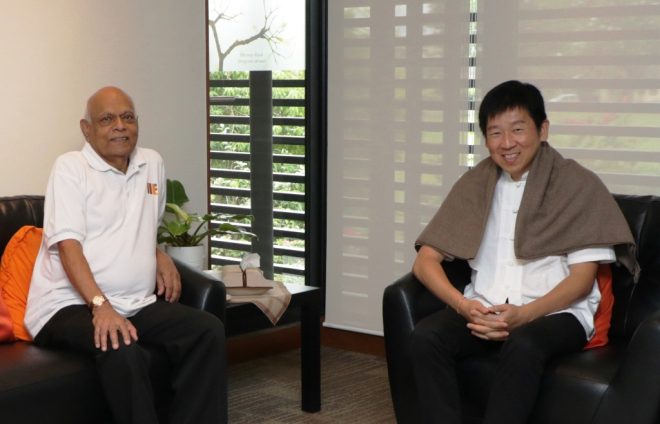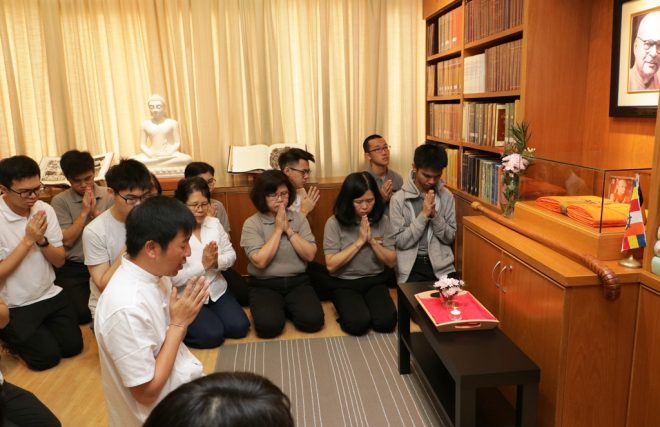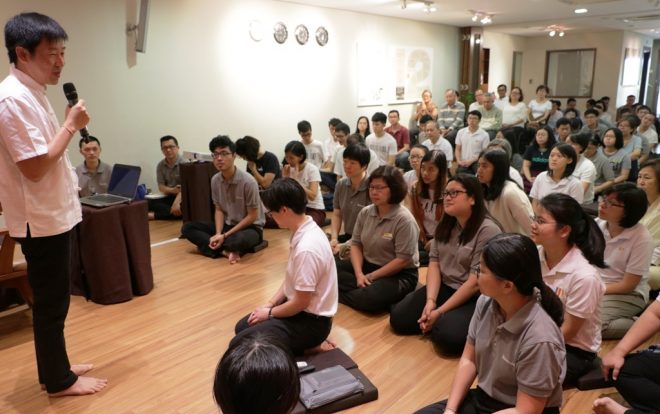Celebrating Nalanda ‘Education Day’
Message from Vijaya Samarawickrama, Chairman of Nalanda Education Committee
One of our most fascinating preoccupations concerns our origins as human beings. Our earliest ancestor can be traced back to a tiny microbe called Saccorhytus which ‘lived’ 500 million years ago and whose fossil remains were discovered in China recently. After millions of years of evolution we left the members of the animal world behind and eventually earned the title of ‘manussa’ – ‘that which has a mind which can be developed’.
This development into humans took place in a relatively short space of time (in geological terms) of 200,000 years. How was this possible? Without a doubt it was our capacity for language which enabled us to formulate ideas and share them with others of our own kind. This gave us the ability to pass on skills which were then improved upon by succeeding generations without needing to re-invent the wheel each time.
Since the beginning of the Iron Age about 3,000 years ago, “education” was taken seriously as an important component of human activity with the greatest minds engaged in how best it could be promoted. Thus we have Socrates and Plato in Greece, the Buddha and his contemporaries in India, as well as Lao Tzu and Confucius in China all proclaiming the importance of education for the benefit of human race.
The Buddha, within a few months of his Enlightenment, made that famous declaration to the first 60 Arahants: “Go forth, O bhikkhus, for the good of the many, for the happiness of the many, out of compassion for the world… teach the Dhamma…”. The Buddha saw that education was the way to improve the lot of living beings. It is interesting to note that all the great thinkers of the world over the past centuries who vastly contributed to human development were teachers.
It is against this awesome and grand backdrop that we in Nalanda Buddhist Society have committed ourselves to promote education as one of its most important pillars. The Buddha declared that the only miracle he approves of is the miracle of education – when an ignorant person who acts unskillfully is converted to a noble person who treads the path of wisdom. For this we use the image which is recognized in all systems of thought: moving from darkness to light.
As educators we are mindful of our proud heritage of carrying out the most useful of human activities and yet at the same time we must never lose sight of the fact that this awareness must always be tempered with altruism. The Buddha exhorted his disciples to teach for the ‘welfare of the many, out of compassion…’. Our only motive for spreading the Dhamma must be to teach our fellow beings the way of wisdom and peace.
As teachers we have a twofold responsibility: before we can teach the Dhamma, we must know what it is clearly so that we do not misrepresent the Enlightened One. We must have the humility to recognize that as ‘putthujana’ (unenlightened beings), there is always the need to seek perfection for ourselves.
The second challenge is that whenever we teach, there must be no ulterior motive of any kind, like seeking material benefits, recognition or power. Our only goal should be to bring happiness to all members of the human race in general without exceptions. If, by our efforts, we succeed in teaching even one person to experience happiness, we would have fulfilled our purpose as educators.
Happy ‘Education Day’!





